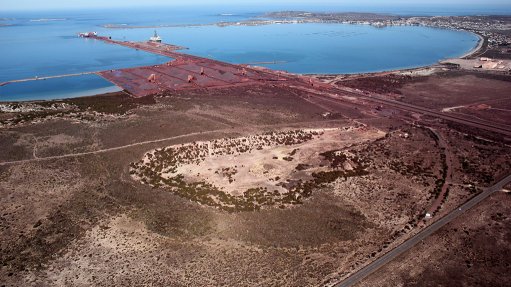
Saldanha Bay
Newly formed oil group Oiltanking MOGS Saldanha (OTMS), a joint venture (JV) between Oiltanking Grindrod Calulo (OTGC) Holdings and Mining, Oil and Gas Services (MOGS), has been granted environmental authorisation for the development and construction of a R2-billion commercial crude oil blending and storage terminal, in Saldanha Bay.
The approval, which was granted by the Western Cape Department of Environmental Affairs and Development Planning, followed the conclusion of eight specialist studies, which were undertaken by independent experts as part of the environmental-impact assessment (EIA).
The envisaged facility would have a total capacity of 13.2-million barrels, comprising twelve 1.1-million barrel in-ground concrete tanks, which were designed to ensure that, should an oil leak develop in one of the tanks, the oil would be collected in a separate layer underneath the tanks and relayed to a special collection point from where it would be pumped back into the tanks.
This layer would be continuously monitored.
“Although not required legally, OTMS decided to also conduct a marine oil pollution control study in addition to the EIA to ensure that any and all of its environmental risks are adequately understood and addressed,” the group said in a statement.
MOGS, which initiated the Saldanha Bay project in 2011, had completed the prefeasibility studies and design of the facility and was in the final stages of obtaining the required statutory approvals.
Engineering News Online reported in September that Saldanha Bay was regarded as the most suitable location for the global crude transshipment hub the JV envisaged, as it was close to strategic tanker routes between key oil-producing regions and major oil-consuming markets.
OTGC Holdings was an independent bulk liquid storage provider in South Africa, while MOGS was a South African company owned 100% by community-based investment company Royal Bafokeng Holdings.